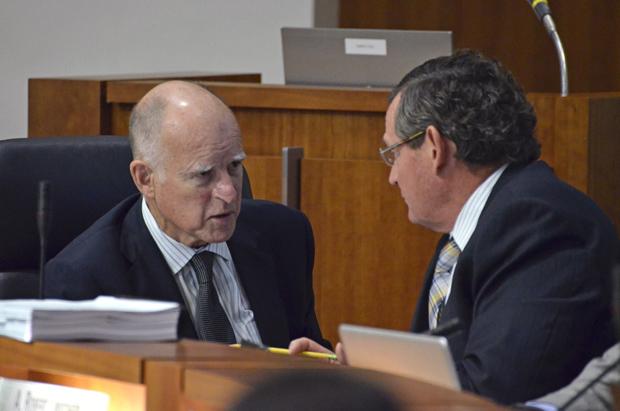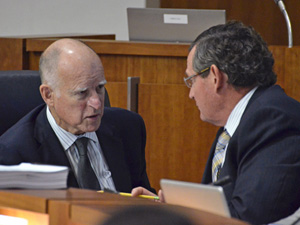
The board of trustees (BOT) approved the $237.6 million state budget request for the 2014-2015 fiscal year Wednesday during their meeting.
As recently reported by the Daily Sundial, there was some friction regarding the passing of the state budget on Tuesday. Trustee Steven M. Glazer felt the budget request presented by the Committee of Finance was too much of a financial risk.
The proposed budget request stated that for three consecutive years $15 million from the board would be allocated in bonds totalling $250 million. The money received from the bonds will go toward the massive infrastructure and priority work within the CSU system that needs to get done. The priority project work and repairs needed amounts to $800 million.
Worried that the board could not financially handle the three-year arrangement they would be committing to, Glazer moved to amend the budget request and to find a less risky alternative.
“I am worried that we will enter into an arrangement that we may not have the finances to sustain,” Glazer said. “We have the finances to approve this budget this year, but will we have it the second and third year?”
At some point Chancellor Timothy White entered the discussion.
“We can continue to cross our fingers and hope for a better day…or we can take action. We do have a responsibility to protect this massive infrastructure that has accumulated,” White said. “We (have) thought deeply about (a better solution) and have not found one. And we’re increasingly worried about the fact that we have not taken an action. We have to have something in place to start this process.”
Toward the end of the debate Tuesday Glazer’s move to bring the budget back before a committee was passed. The committee met after the BOT meeting Tuesday and presented the budget request to the board again te following day. Wednesday the board voted and approved both the requested $237.6 million and the $15 million over the course of three years.
According to the CSU Leader, the $237.6 million will be set aside to “meet increasing enrollment demand, augmentations for student success and completion initiatives and a modest compensation increase.”






